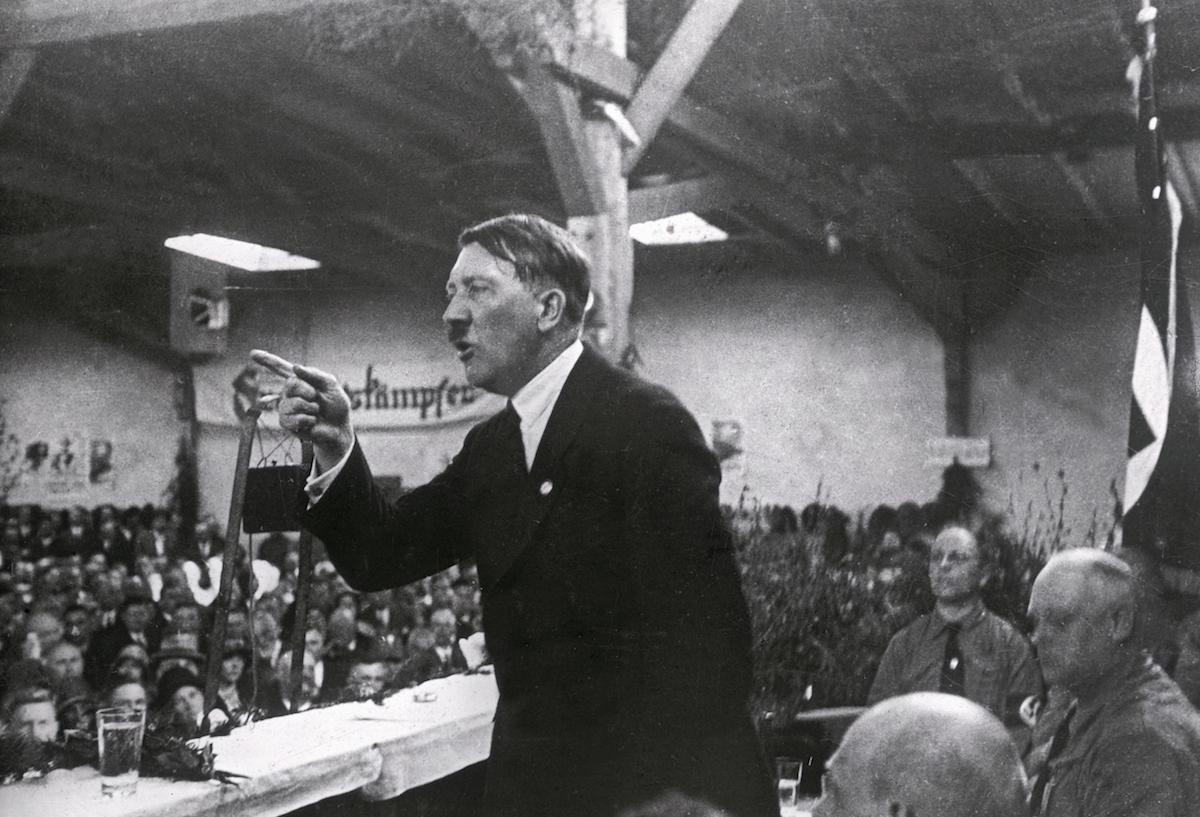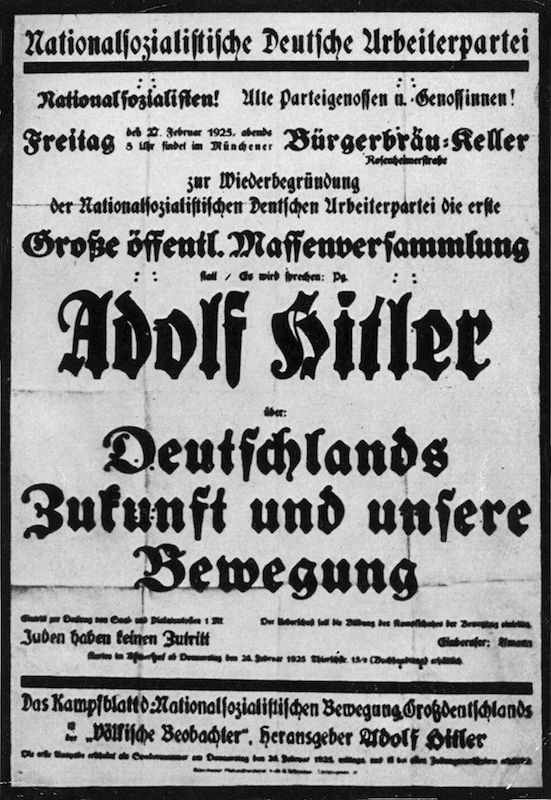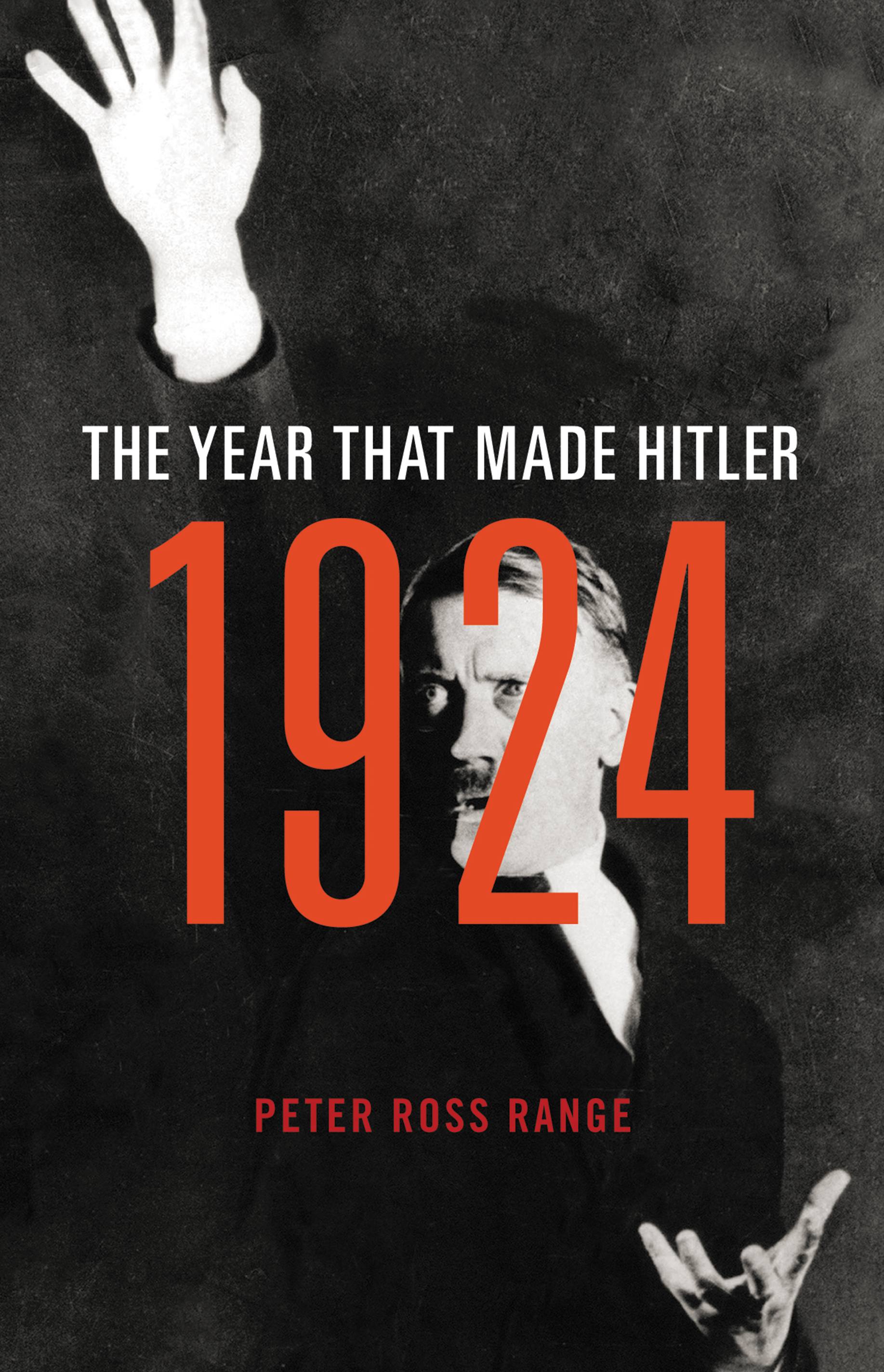
In his new book 1924, Peter Ross Range (formerly of TIME) explores how the year Adolf Hitler spent in jail—following a failed attempt at a coup in November of 1923—was a crucial step in his rise to power. As Range writes in the introduction, “Had Hitler not spent 1924 in Landsberg Prison, he might never have emerged as the redefined and recharged politician who ultimately gained control of Germany, inflicted war on the world, and perpetrated the Holocaust.”
In this excerpt, 1924 is coming to an end and Hitler has been released from prison. He returns to Munich to plot what would come next:
Munich was tantalized by the reports of Hitler’s coming book. Its conspicuous absence, almost as though planned by the sly Hitler, made it mysterious and intriguing. The naughty socialist Münchener Post in late January claimed that “Hitler’s memoir, so pompously announced before the end of last year, about ‘four years of fighting against cowardice, stupidity and criminality’ has not been written and will never be written.” Esser’s Nationalsozialist took umbrage: “In view of this lying statement, we can report that Hitler’s comprehensive book is with the Eher Verlag and is already set in type.” The newspaper also ran an ad for the book with a brand-new title: Mein Kampf—the first appearance of the short, punchy, soon-to-be world-famous title in print. Yet for all the uproar, Hitler’s book was still delayed. It did not appear on bookstore shelves until July 18.
The pressure on Hitler to position himself in the swirling cauldron of völkisch politics was mounting. Hitler’s indispensable first step was to have the bans lifted on the Nazi Party and its newspaper, the Völkischer Beobachter. Hitler went hat in hand for two meetings with Heinrich Held, the Bavarian governor. As only he could, Hitler presented himself as a prodigal son, remorseful of past sins and now convinced that violence and force had no part in politics. State authority had to be respected, he said. Above all, Hitler promised “not to stage a putsch.” Held accepted Hitler’s assurances and agreed to remove the bans on the party and the newspaper. “The wild beast is checked,” said Held. “We can afford to loosen the chain.”

Hitler scheduled his resurrection for February 27, 1925. His choice of the Bürgerbräukeller was both predictable and effective. Just as they had done on the night of Gustav Kahr’s November 1923 speech that had ended in his temporary kidnapping by Hitler, the police had to close off the streets around the beer hall. Just as in 1923, anticipation and emotions were running high. But unlike the night of the putsch, this evening would not be marked by shots into the ceiling, hostage-taking, or proclamations of a deposed government. Instead, there would be a highly staged comeback.
Before the speech, Hitler made clear in a Völkischer Beobachter editorial that his first demand was instant peace among rival factions and unconditional obedience to him. Hitler’s sense of mastery—of the movement and of the moment—was so complete that he would accept conditions from no one. Everyone had to rejoin the refounded party; no previous memberships would be carried over. It was to be a totally new beginning. There was no talk of shared leadership, joint decision-making, or special roles for special people. Hitler was to have absolute authority.
On the evening of the speech, however, it looked as though Hitler might have walked into a trap of his own making, raising expectations that he could not fulfill. General Ludendorff, Gregor Strasser, and Ernst Röhm weren’t attending Hitler’s grand show. Alfred Rosenberg also stayed away, dismissing the event as a “comedy” and anticipating the “brother-kissing” that Hitler would demand in such a setting. Hitler asked Drexler, as founder of the original German Workers’ Party, to preside. But Drexler would agree only if Hitler first expelled the hated Hermann Esser, which Hitler refused to do. Finally, Hitler settled on Max Amann, a good businessman but no stem-winding speaker, to open the big evening.
Given the anticipation and adulation in the crowd, it probably wouldn’t have mattered what Hitler said. He delivered in his usual style. Speaking for two hours, Hitler managed to whitewash all that had gone wrong over recent years. He also highlighted his belief that, in the fight with Jewish Marxism, there had been only two possibilities —“either the enemy walks over our dead bodies or we over theirs.” The old Hitler was back, signaling that violence was still an option (and leading to the party’s re-banning by Governor Held a few days later).
Hitler also issued a warning to rivals who might want to constrain him. “Anyone who thinks he can condition his joining the party with some stipulations doesn’t know me very well,” said Hitler to loud applause. “As long as I carry all the responsibility, I’m not willing to let others set conditions for me. And I take full responsibility for everything that happens in this movement!” Hitler finished to cheers and “Heils!” just as he had in years gone by. He could still whip up a crowd. Astonishingly, he even promised that if he had not fulfilled the members’ expectations after one year, he would resign. Hitler had thrown down the gauntlet, daring anyone to pick it up.
Then came the coup de théâtre that was the real point of the evening. Demanding that feuding factions put aside their differences, Hitler called to the stage the sometimes bitter enemies who had showed up for the event. These included Gottfried Feder, Wilhelm Frick, and Rudolf Buttmann, the part of the völkisch movement that favored parliamentary participation; and Esser, Julius Streicher, and Artur Dinter, who opposed it. Various other players joined them on the stage. Hitler once again demanded the hearty handshakes and deep-in-the-eyes looks that he’d forced from his three hostages on this same stage fifteen months earlier, gestures of emotional and political commitment for the benefit of the crowd. The hack artist had composed a grand tableau of unity, with himself as the central figure, before thousands of witnesses. And, as on the evening of the putsch, the performance culminated with three thousand people singing “Deutschland, Deutschland über alles.”
The rousing night in the Bürgerbräukeller was a triumphal return for Hitler. Despite its flaws—the absence of some top names, the soon-to-be-restored party ban—Hitler had used it as the springboard not only back to where he had been before, but to a level of leadership and control that was unprecedented. He had presented himself as god, and the believers had accepted. It would not mark the end of internal struggles—some would last up to the 1930s—but it signaled a relaunch of Hitler’s Führerpartei, a leader-dominated party that would become his personal tool and vehicle for building a dictatorship. And the night of rhetoric and adoration signaled the end of Hitler’s journey through exile, trial, and resurrection. Restored and reinvented, with his catastrophic putsch attempt far behind him, he had begun the long march to power.

Excerpted from the book 1924 by Peter Ross Range. Copyright © 2016 by Peter Ross Range. Reprinted with permission of Little, Brown and Company.
More Must-Reads From TIME
- The 100 Most Influential People of 2024
- Coco Gauff Is Playing for Herself Now
- Scenes From Pro-Palestinian Encampments Across U.S. Universities
- 6 Compliments That Land Every Time
- If You're Dating Right Now , You're Brave: Column
- The AI That Could Heal a Divided Internet
- Fallout Is a Brilliant Model for the Future of Video Game Adaptations
- Want Weekly Recs on What to Watch, Read, and More? Sign Up for Worth Your Time
Contact us at letters@time.com